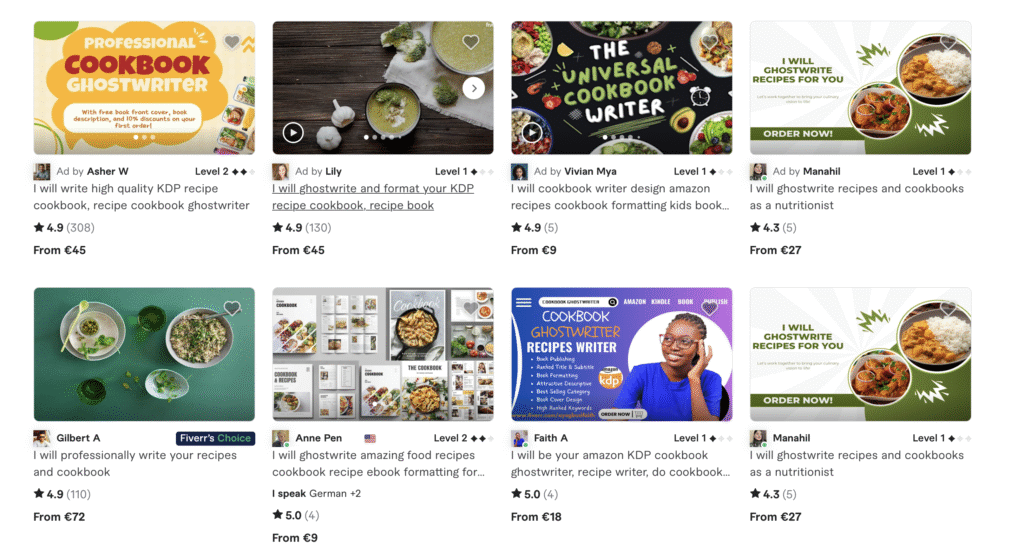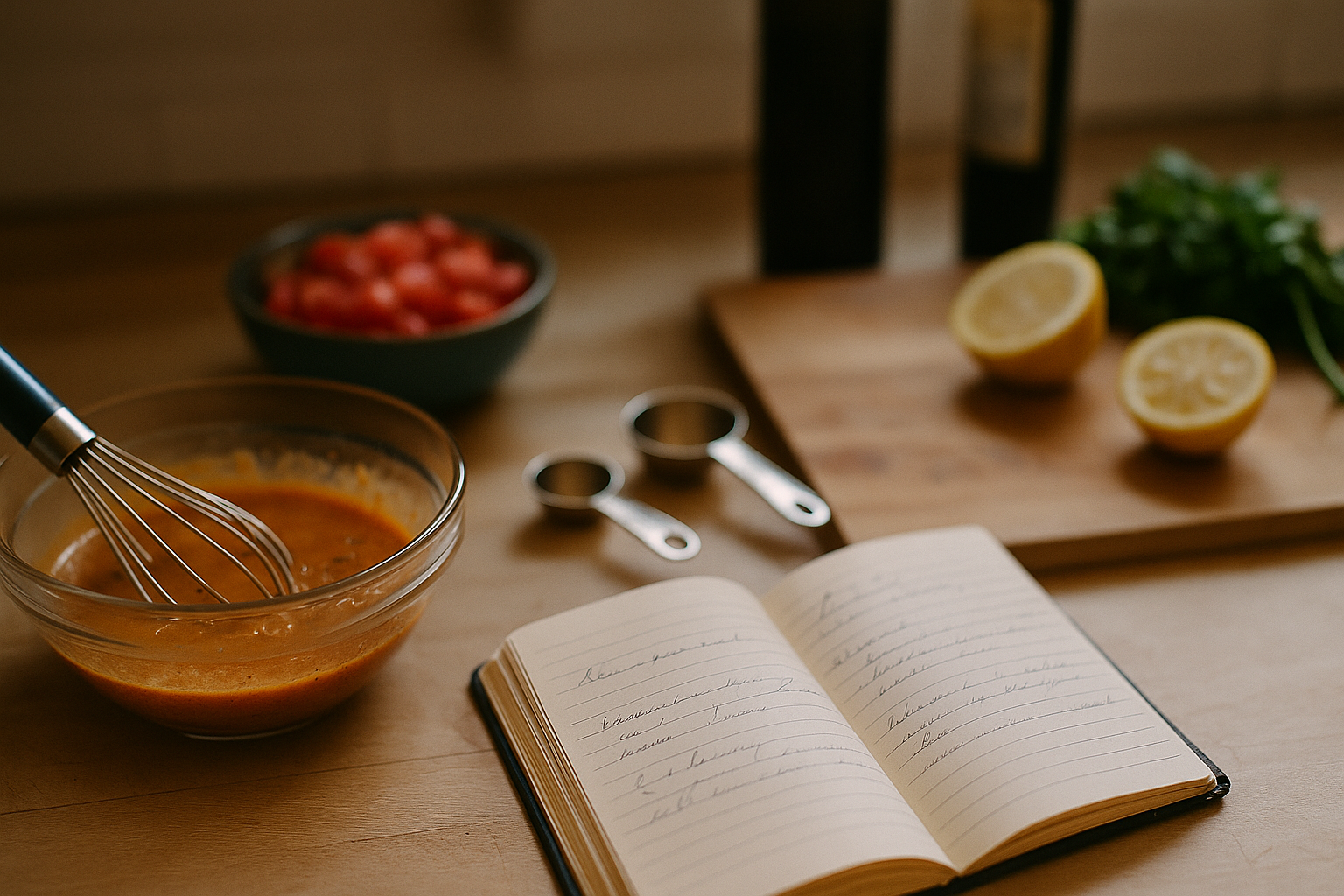It’s 3:07 a.m. My kitchen smells like cumin and melted sugar, my hands are orange from turmeric, and I’m arguing with myself over whether this sentence needs the word “generously.” Somewhere in the next room, my phone keeps buzzing with a message from the client: Could we make it 10 more recipes?
That, in a nutshell, was my life when I worked as a cookbook ghostwriter. It sounds glamorous. It wasn’t. It was a lot of cooking, a lot of editing, and a strange amount of time spent pretending to be someone else on paper.
How I Fell Into It
Like most ghostwriters I know, I didn’t set out to be one. I was writing food articles for a living, testing the occasional recipe for friends, when a mutual contact asked if I could “help shape a chef’s manuscript.” Translation: take a jumble of recipes, half-written anecdotes, and Post-it notes and turn them into a book people would actually want to read (and cook from).
I said yes. That first job paid almost nothing, but I was hooked. There was something addictive about disappearing into someone else’s culinary brain and bringing it to life on the page.

Meeting the Client (and Their Quirks)
Every ghostwriting project starts the same way: a slightly awkward meeting where you figure out if you can actually work together. Some clients are warm and chatty; others treat you like a kitchen intern they didn’t ask for. One chef gave me exactly one hour in their office, spoke in rapid-fire bullet points, and then left me with a stack of handwritten index cards that smelled faintly of garlic.
You learn to adapt. You record interviews, dig through old menus, stalk their Instagram for voice clues, and eventually figure out if they say “chop” or “dice,” “tablespoon” or “heaping spoonful.”
The Recipe Testing Circus
Here’s what people don’t see in the finished cookbook: the chaos. I’ve made the same cake three times in one day because the frosting kept splitting. I’ve bought 12 pounds of potatoes “for testing” and ended up with mash fatigue. I once had to recreate a recipe that existed only in the chef’s memory — it involved mangoes, coconut milk, and “a splash” of rum, which turned out to mean half a cup.
Testing isn’t just about flavor. It’s about making the recipe work for a stranger in a small kitchen with a regular stove, not a chef with six burners and an oven that costs more than a car.
Deadlines, Drama, and Last-Minute Changes
There’s a special kind of panic that sets in when the manuscript is almost done and the client decides they’ve “just remembered” five recipes that simply must go in. Or when the editor wants the entire soup chapter to be “more comforting” but can’t explain what that means.
Once, a client called me at midnight to ask if we could rename the dessert section “Sweet Endings” because it sounded “sexier.” I said yes, because you say yes a lot in this job.
The Credit Thing
Here’s the part that weirds people out: your name usually isn’t on the cover. Sometimes it’s in tiny print on the title page, sometimes not at all. Your job is to make the client shine, not to share the spotlight. I thought it would bother me — it didn’t at first. But after a few years, it started to feel strange watching people praise “their” writing when I knew every comma choice had been mine.
Why I Stepped Away
I stopped ghostwriting cookbooks for a mix of reasons: the hours, the stress, and the fact that I wanted to write in my own voice again. There’s a freedom in owning your words — even if they’re about something as simple as a Tuesday night pasta.
Do I regret it? Not at all. I learned how to structure a book, how to coax stories out of people who swear they have none, and how to troubleshoot a sauce that’s both burnt and undercooked (yes, it can happen).
Would I Recommend It?
If you love food, have patience, and can swallow your ego, yes — at least once. It’s like culinary improv with a deadline. But know what you’re signing up for: long hours, messy kitchens, and the quiet satisfaction of seeing strangers cook your words without ever knowing they’re yours.
I still get messages from friends saying, “Hey, I made that roast chicken from so-and-so’s book — it was amazing!” I just smile, say “Glad you liked it,” and leave it at that. Some secrets are better left in the kitchen.
Related posts:
Jacklyn is a San Diego–based food journalist with a background in the confectionery world. Before diving into food reporting, she worked at a startup crafting plant-based, low-sugar sweets designed to make candy a little healthier







